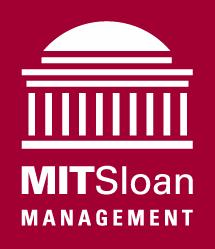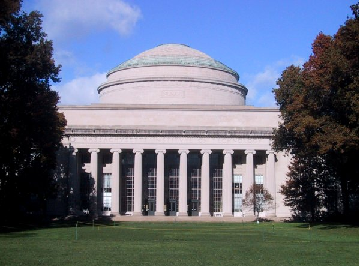Please share
with us something about the time you spent at BITS
Pilani
 Being
from small town in Karnataka, I had experienced little
competition or cultural diversity prior to BITS.
The BITS environment was my first exposure to a
large group of extremely talented individuals who knew
how to work hard and play hard.
Being
from small town in Karnataka, I had experienced little
competition or cultural diversity prior to BITS.
The BITS environment was my first exposure to a
large group of extremely talented individuals who knew
how to work hard and play hard.
I
have the fondest memories of my time at BITS. BITS gave
me two great gifts. The greatest gift was confidence.
For the first time in life, I thought I could
attempt to accomplish something and actually stood a
chance of succeeding.
And secondly, it gave me wonderful, lifelong
friendships.
We’d love to
hear about your activities, particularly any special,
memorable moments.
In many ways I
(and to a large extent the entire group that I hung out
with) was academically motivated. That being said, we
were certainly consumers of all the activities that went
on at BITS – movies, plays, cultural nights, Oasis,
elections, and sports. Being a native Marathi speaker, I
was also active in the Maharashtra Mandal.
A lot of current students as well as alumni grapple with the
idea of making a transition from the US to India. Could
you please tell us a little about your experience with
the transition you made from India to the US?
My move from
India
to the
US
came about three years after I left BITS.
I worked for a year at DCM as a Management
Trainee, spent two years at the Indian Institute of
Management, Ahmedabad (IIMA), for an MBA and then came
to the
University
of
Iowa
for a PhD in accounting.
Settling in at the
University
of
Iowa
turned out to be
remarkably easy and truly enjoyable!
I found student life in a campus town like
Iowa City
quite similar to that in
India
.
Iowa City
being a small town,
financially it was quite comfortable to live on a
fellowship income. More importantly, my classmates and
other students – Americans, other nationalities, and,
of course, Indians – were all extremely helpful, which
made life very easy.
I was also impressed by the keen interest and
concern the faculty showed in PhD students.
I really benefited from the experience.
What made you
choose teaching as a career after your PhD? And more
specifically, why Accounting?
Once I joined the PhD program,
which is almost all about research, simply put, I got
hooked to it! I
found it truly challenging and extremely satisfying to
work on research. The
thought of getting paid to read, write, and think with
few constraints on what you work on and when you work
was too good to pass up.
I became more or less a workaholic because how
much I enjoyed thinking of interesting research
problems, be it in Accounting or in Finance.
Why Accounting?
In retrospect it seems a trifle accidental.
There used to be limited distinction between
Accounting and Finance in
India
and I thoroughly enjoyed
my exposure to Accounting while I was at IIMA, so I
decided to apply to Accounting programs.
Accounting is
not a subject completely understood by the average
person, but certainly a subject that’s been in the news
lately due to Enron and the other similar scandals. How
does Accounting play a role in our lives?
Accounting plays a huge role in an economy, but mostly indirectly in our
lives. Accounting
is all about information that is used in making all
sorts of decisions – investment decisions, buying and
selling of stocks, pricing of bonds, hiring, firing, and
compensating management, and so on.
Lately, the role of accounting
in international context has become of great import to
politicians, macroeconomists, and of course to
accountants. This
is all about what kind of accounting information should
be disseminated on an ongoing basis so that people
nationally and internationally would feel comfortable
investing in a company’s stock.
This issue is extremely important because every
developing country is seeking foreign direct investment
into its own country.
 MIT is at the
forefront of global technical and business education.
What sets MIT apart? What makes the institute so
successful?
MIT is at the
forefront of global technical and business education.
What sets MIT apart? What makes the institute so
successful?
MIT is a very, very special
place. It has a long tradition of rewarding excellence
and only excellence.
Naturally, it attracts the very best minds from
all over the world.
MIT is also a very special place
because of its mission to make the world a better place.
My own interactions with many faculty and students time
and again leave me impressed with the selfless desire of
so many to help the world through technology,
management, sciences, architecture, and the arts.
There is a fire in the belly of so many on this
campus that it seems only natural that it does so well.
How does BITS start down the path of becoming an MIT? What
role do you see the alumni playing?
 A
school’s reputation is built on that of its faculty,
which attracts the brightest students, who in turn do
well, and it becomes the self-fulfilling process.
BITS has built an excellent brand name for itself
over the years. The
more it works on building a more research oriented
faculty, the more it will benefit.
Young faculty are attracted to a place that helps
them build their human capital. For a faculty, research
reputation is human capital.
If you want to attract the best faculty, offer
them an opportunity to do research and REWARD their
research. Building a meritocracy is crucial.
A
school’s reputation is built on that of its faculty,
which attracts the brightest students, who in turn do
well, and it becomes the self-fulfilling process.
BITS has built an excellent brand name for itself
over the years. The
more it works on building a more research oriented
faculty, the more it will benefit.
Young faculty are attracted to a place that helps
them build their human capital. For a faculty, research
reputation is human capital.
If you want to attract the best faculty, offer
them an opportunity to do research and REWARD their
research. Building a meritocracy is crucial.
You were involved in OpencourseWare, the project by MIT to put
all coursework on the web. Please share with us how you
are involved and how you have seen your department
benefit from the initiative?
In the heyday of the Internet
bubble, MIT put together a group of faculty and staff to
look into whether MIT should offer distance learning
programs. We
looked at the issue and thought that perhaps MIT could
make some money by offering distance learning.
However, this did not appeal to the imagination
of anyone on or outside the committee.
We were primarily interested in finding out
whether technology can help people all over the world
get a better education. This led us down the path of
recommending that MIT should make its educational
content available to everyone free of charge.
What a revolutionary idea.
It was welcomed by everyone, especially
philanthropic organizations. Soon OpenCourseware became
a reality and now almost half of MIT’s courses are
accessible on the net by anyone in the world.
Most of the benefit of
OpenCourseware for MIT and for my department is through
brand recognition. Once
again MIT has established itself as a leader in
furthering the mission of making the world a better
place. What better advertising would one wish for?
Who is Gordon Y Billard?
Gordon Y Billard is
extremely generous MIT Sloan alum.
He has donated so much money that there are at
least three Sloan faculty who hold the Billard Chair.
|

Name:
Dr. S P Kothari
Position:
Gordon Y Billard Professor at the MIT Sloan
School of Management, the Head of the Department
of Economics, Finance, and Accounting at MIT
Sloan.
Education:
PhD University of Iowa
(’86), MBA IIM Ahmedabad (’82) and B E Chemical
BITS Pilani (’79).
Other
Interests:
Traveling, fine dining, and occasional gourmet
cooking. |
What are the biggest hurdles facing US academics today
particularly in your field? How can they be fixed?
We routinely compete for
good talent, but face stiff competition from industry
jobs that are quite lucrative. So, the biggest challenge
is to figure out a way to make academic jobs
sufficiently financially attractive for the successful
academics so that we would be able to attract many
excellent students applying for the PhD programs.
Have you ever worked with an engineering student from Pilani
or even India? What are your impressions of them versus
American-educated students?
Holding the raw
intelligence constant, American-educated students tend
to have a broad-based education and tend to have a
better perspective. When we were there, BITS was a wild
place. My BITS life is full of such memories and in
terms of bonding with friends, it was a phenomenal
experience.
What do you think are the biggest challenges facing BITS
today?
The scarcity of resources is
certainly an issue.
And the admissions process seems
to have broken down in the past couple of years with
disproportionate students from a few states being
represented in the student body. Regardless of the
facts, the perception that the process is unfair has the
potential to seriously harm the BITS brand.
Should BITS teach accounting alongside Finance as part of the
MMS program at BITS?
Absolutely! I cannot imagine an
MMS program without accounting.
BITS has a serious branding
problem when it comes to its MMS degree.
I don’t believe many see it as a serious
alternative to the IIMs or even to schools like the
newly-started ISB or other places like the Symbiosis
Institute in Pune.
What advice
would you give BITSians based on your experiences?
You
must enjoy what you do. Unless your heart is in it, an
activity that takes majority of your time in a day
cannot be fruitful. There is no substitute
for hard work. You compete with other very talented,
hardworking individuals. Your odds of beating the
competition without working hard are practically zero. Surround yourself with
smart individuals. There’s so much to learn from
others. However, smart individuals will be willing to
spend time with you only if you contribute meaningfully
to them in return. Think about what and how you can add
to their human capital. Did I mention hard work?
What are your best memories of your time in Academia?
My best memories are all
about the colleagues – fellow faculty and PhD students
– I have met over the past two decades.
I have been fortunate to be around some of the
very best minds in Accounting and Finance.
It has been a privilege to have had about 25
phenomenal doctoral students.
Both these groups of individuals have made
academic life enjoyable and memorable.
What can BITSians do better/start doing to compete with the
world’s best?
BITSians
do very well. So,
anything more would only add further shine.
I would suggest that they take some risks and
introspect. What do you really enjoy and what’s your
aptitude? It’s
hard for me to imagine that every BITSian is only
interested in an engineering job.
Widening the horizons, attempting more creativity
with some attendant risks might result in a greater
blossoming of BITSians.
How was your
Pilani visit personally and professionally?
I have difficulty finding
words that can adequately express my joy, a sense of
gratitude, and satisfaction from visiting Pilani after
25 years for the reunion.
I was overcome with emotion by the hospitality
and warmth of everyone there, the faculty, students, and
staff. Seeing
old friends and reminiscing about the old times and the
juvenile activities, that was priceless.
Tell us about
your family? Have they been to Pilani?
My
wife, Dafni, and I have two daughters – Kavita (19) and
Monica (12). Kavita is a sophomore at MIT and Monica is
a huge fan of Boston Red Sox. She started following the
Red Sox for the first time this year, and they won the
World Series! (see photo)¨
|
(c) Copyright 2004 BITSAA International Inc. |
|
Website
by jPeople,
YonEarth
and BITSAA Technology |

